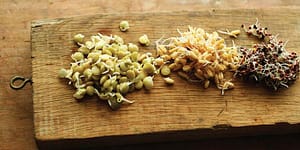Sleep, Performance, and the 21st-Century Athlete

Sleep seems to be the thing that escapes most of us. In a society that praises long hours, we aren’t getting the rest needed for optimal physical and mental performance. Continuously practicing to be the best is an unhealthy myth that drives many athletes. Studies recently conducted are reporting that the best way improve athletic skill isn’t by practicing more, but by sleeping more.
The following is an except from Peak by Marc Bubbs. It has been adapted for the web.
Research on sleep and athletic performance has exploded over the past decade. Sleep scientists have found that total sleep time and sleep quality are both highly associated with virtually every athletic quality: speed, endurance, strength, power, injury risk, immunity, attention, decision-making, learning, and so on. This can be the difference between winning and losing. If you’re spending long hours in the gym, on the playing field, and in the film room trying to be the best you can be, do you really want to ignore the low-hanging fruit of sleep and all the potential benefits?
Sleep expert Cheri Mah, MD, of the University of California San Francisco (UCSF) Human Performance Center and sleep consultant in all four major American sports (NBA, NFL, NHL, and MLB) was one of the first researchers to quantify the effects of lack of sleep on athletic performance almost a decade ago. Her work at Stanford with collegiate basketball players exposed the tremendous impact sleep extension could have on athletic performance. Mah’s research revealed how extending sleep from 6.6 hours to 8.5 hours nightly produced significant performance gains—a 5 percent increase in speed, a 9 percent increase in free throw percentage and a 9.2 percent increase in three-point shooting percentage—in only two months. It wasn’t just basketball players; athletes across all sports were performing better. Football players had better reaction times, tennis players had greater first serve percentage, swimmers had faster sprint times, baseball players had better reaction times, and on it went. It seemed that every athlete who extended sleep time performed better.
Mah’s initial research was not aimed at athletic performance but rather at assessing the cognitive effects of sleep extension in athletes. Interestingly, the athletes returning to her lab were reporting significantly improved performances in practice or hitting new personal best times in competition. As a result, Mah shifted her research focus to performance. Based on her work, it became apparent athletes should be aiming for 8–10 hours of total sleep per night. The impact of sleep on recovery and performance is so profound, Dr. Mah says, that “sleep should be a nonnegotiable.” Since then a huge focus has shifted to sleep in the context of performance. Yet while athletes and coaches are aware of the tremendous importance of sleep on performance, the question remains: How much sleep are athletes actually getting?
Adult and youth recreational athletes consistently report less than 8 hours of sleep per night, with no differences between men and women. Elite athletes must be better, right? Unfortunately not. In fact, they fare even worse. A recent study of more than 800 elite athletes in South Africa found 75 percent were not getting at least 8 hours of sleep per night. Alarmingly, they also found 11 percent were not even getting 6 hours of sleep nightly! Less than 6 hours of sleep per night is when health and performance really start to nosedive, and incredibly 1 out of 10 athletes is performing at the highest level despite this performance shackle. Olympic athletes are the same story; they are human too and also struggle to get enough shuteye.

There are four key domains to maximize athletic performance:
physical abilities (speed, strength, and the like); technical skills (such as dribbling and lifting technique); tactical skills (during the game or competition), and psychological mettle (mindset, drive, and so on). The lack of sleep can sabotage all four (probably faster than any other factor). Sleep is perhaps the ultimate performance enhancer, yet despite the research and increased public awareness, it is not a fully tapped resource. But before we discuss a variety of sleep solutions from world-leading experts, let’s take a closer look at why sleep is so crucial.
The Evolution of Sleep
How old is sleep? Really, really old. The earth is approximately 3.8 billion years old, and the oldest living things on the planet, single-celled bacteria called prokaryotes, undergo a form of sleep. They have distinct “on” and “off” phases of their cell cycles that mimic sleep. Five hundred million years ago, before the first vertebrates appeared on the scene, worms existed—and they sleep, too. In fact, if you deprive a worm of sleep for a night, it will sleep longer the following night. In his terrific book Why We Sleep, Matthew Walker, PhD, sleep expert and professor of neuroscience at the University of California, Berkeley, explains how the same phenomenon occurs in humans, and how this natural effect of sleep extension (after deprivation) is evolutionarily hardwired. Dr. Walker also highlights that we share 99 percent of our DNA with our primate ancestors like chimpanzees, and yet our sleep requirements are almost half. How could this be? Despite existing for five million years before humans, Walker notes chimpanzees didn’t acquire the ability to reason, problem solve, or create societies to the level of humans; nor did they achieve the equivalent brain size. In fact, chimpanzees are still functioning under the same set of rules they have for millions of years. Dr. Walker argues that sleep is one of the strongest factors that made us human, and believes REM sleep played a fundamental role in shaping the human brain.
REM sleep is the dream state, when our bodies become paralyzed and our brains are hurled into a frenzy of sporadic activity. REM sleep promotes more rational control, dials in emotional connections, and facilitates recognition and intelligent decision-making. REM sleep also supports creativity, connecting all of your brain networks to help you form new ideas and curiosities. In short, REM sleep enhances our emotional intelligence, a key piece of the puzzle in the evolution of humans. Incredibly, humans dedicate 20–25 percent of sleep time to REM sleep, compared to only 9 percent in other primates. How did humans evolve this ability to amplify REM sleep? Dr. Walker believes it was our early ancestors’ ability to use fire. Homo erectus was the first of our hominid ancestors (the great apes family of orangutans, gorillas, chimpanzees, and humans) to come down from the trees and sleep on the ground. Sleeping in trees doesn’t afford you the luxury of a lot of REM sleep; during REM sleep, your body is in a state of paralysis, so falling out of a tree at night was not good for survival. Once on the ground, the sleep of our early ancestors got shorter and much more intense. (Sleeping on the ground by a campfire also likely served as a deterrent to keep predators at bay.) Walker believes sleeping on the ground ramped up REM sleep, triggering an explosion of neural circuitry and complexity that has become our human brains. In short, REM sleep is fundamental to both our health and athletic performance.
Recommended Reads
Recent Articles
Want to start your own medicinal herb garden? Passionflower, lemon balm, and goldenseal are great places to begin! These herbs are jam-packed with medicinal properties and easy to grow in a majority of climates.
Read MoreSprouts are easy to cultivate, mature quickly and pack a nutritional punch! You can make nutrient-rich sprouts from all kinds of edible seeds in your kitchen.
Read MoreSuffering from frequent headaches is miserable and immobilizing. If you haven’t had luck treating and preventing your headaches, skip the over-the-counter approach and prepare herbal formuals for migraines to use in the future! The following is an excerpt from Herbal Formularies for Health Professionals, Volume 4 by Jill Stansbury. It has been adapted for the…
Read More“It is more important to know what kind of person has a disease than to know what kind of disease a person has.” —Hippocrates Drawing on her decades of clinical experience and her extensive research, Dr. Jill Stansbury offers an unparalleled range of herbal formulas in her five-volume set, Herbal Formularies for Health Professionals. For each…
Read More








